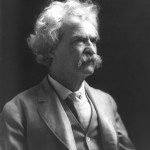Trust in God is similar: I have faith in God because having had a relation with him for fifty years or more, I know that I can trust him. He is faithful to his promises. I put my trust in him years ago and he has not failed me. Were my faith more perfect, I would probably question less; I don't yet have the kind of faith in God that I have in Janice. (Kierkegaard would be scandalized.) But I trust him.
For a Christian, trust in God is not based on reason, though it is not inimical to reason. Christian trust is based on love, his love for us made manifest in his Son and our reciprocating love for him. Love rather than reason or power is at the heart of the Christian understanding of the universe.
Whatever reasons can be given or power can be exercised, they are what they are and can be understood only within the framework of God's love. Love will, perforce, be central to any eventual resolution to the question of women's and the priesthood.
So the question is not what justifies women's exclusion rationally, but whether that exclusion is consonant with the love of God. That's harder to answer, probably impossible short of revelation. Some have moral intuitions to the contrary; others do not. But short of revelation or divinely inspired and vetted explanation, those intuitions remain only intuitions, and the only thing a believer can do is lovingly trust in a loving God.
Loving trust in God doesn't make rational difficulties go away. It doesn't mean that I now know the answers to questions that previously I did not, nor does it mean that I no longer think those questions are real. It doesn't mean that present practices are perfect. It doesn't mean that I think LDS women should all feel comfortable with the status quo.
Trust doesn't mean that men don't sometimes abuse the power they have, often unthinkingly. (Mormon scripture insists on the reverse, that most of us abuse our power: D&C 121:39.) It means that I am willing to live with uncertainty or ignorance in the face of my questions because I trust God as he has revealed himself to me through the Spirit. Trust means that the force of the question changes when reason's foundation is love, when reason is not independent.
So this question is something I tentatively put on hold saying, "I don't know. I find the exclusion of women from the priesthood rationally perplexing. Some women find it painful, and I am pained by their pain. But I trust in God and his loving mercy."
Based on experience as well as revelation I believe that all things will ultimately be turned toward our good, mistakes and evils and misunderstandings, on the one hand, our blindness and frailty, on the other. So, whatever the answer to the question of women and the priesthood, my witness that the LDS Church is where I should be is stronger than my worries, concerns, or objections. Trust in God's love calms them without making them go away.





